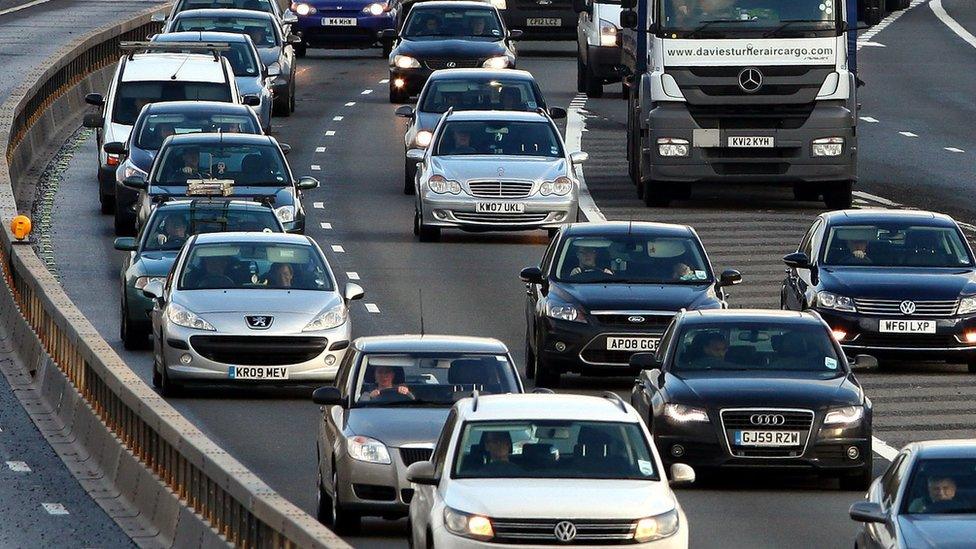Smart motorways 'too confusing', says highways boss
- Published
- comments
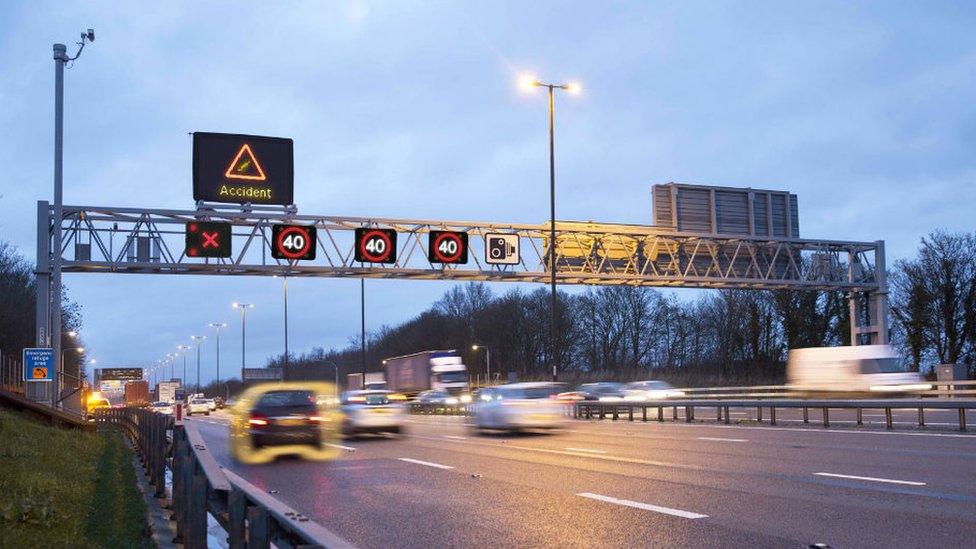
Some smart motorways utilise the hard shoulder at all times while others use it during busy periods
Smart motorways which use a hard shoulder at busy times are "too complicated for people to use", the boss of Highways England has said.
Chief executive Jim O'Sullivan said motorists did not understand them and there were no plans to build any more.
He told the Commons Transport Select Committee drivers were confused about when they could use the hard shoulder and when it is closed.
Critics have called for smart motorways to be scrapped.
The design is already used on sections of the major motorways including the M1, M6, and M62.
"Some hard shoulders on dynamic smart motorways are only open to running traffic during the morning and evening peaks, but this catches out some drivers when their routine changes," Mr O'Sullivan told MPs.
"When we close it at other times of the day, people still drive down it."
"We get people who stop there when it's a running lane," he told the committee.
"I don't think we will be building any more dynamic hard shoulder smart motorways. They're just too complicated for people to use."
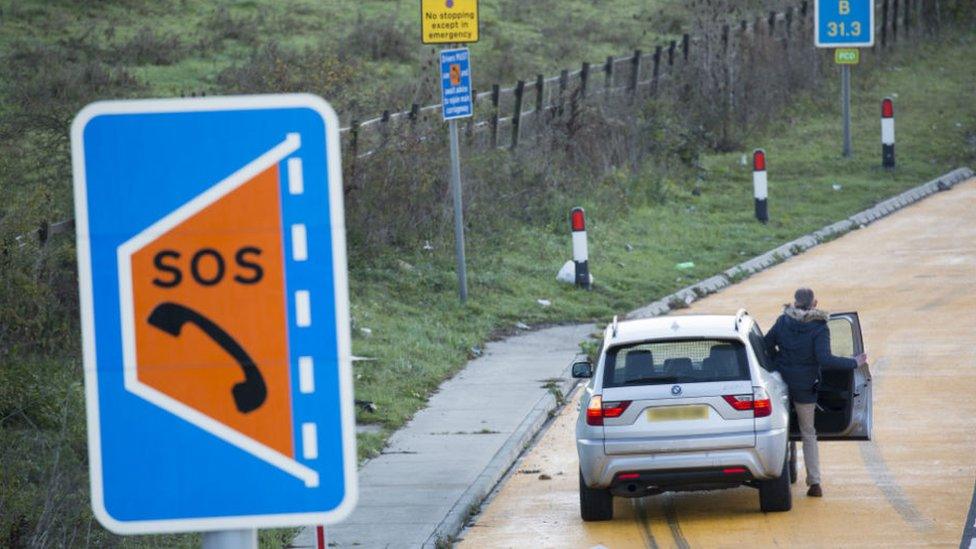
Emergency bays have been built to replace the hard shoulder
There are two types of smart motorway in the UK.
The first is where the hard shoulder is opened to traffic when it is busy.
The second is where the hard shoulder is open all the time.
Despite his comments about dynamic lanes, Mr O'Sullivan claimed smart motorways were at least as safe as conventional motorways.
Opponents argue the removal of a permanent hard shoulder puts drivers at risk.
Derek Jacobs, 83, was killed when his car was hit after it stopped on a section of the M1 in Derbyshire.
About six months earlier another woman was killed after a breakdown on the same stretch of road.
Jason Mercer, 44, died on the M1 near Sheffield, where the hard shoulder is an active lane.
He was involved in a minor collision but when he got out his car to exchange details he and the other driver were hit by a lorry. Both died at the scene.
His widow Clare said she was astounded Highways England had actually admitted there was a problem.
"They should never have been implemented," she said.
- Published15 December 2018
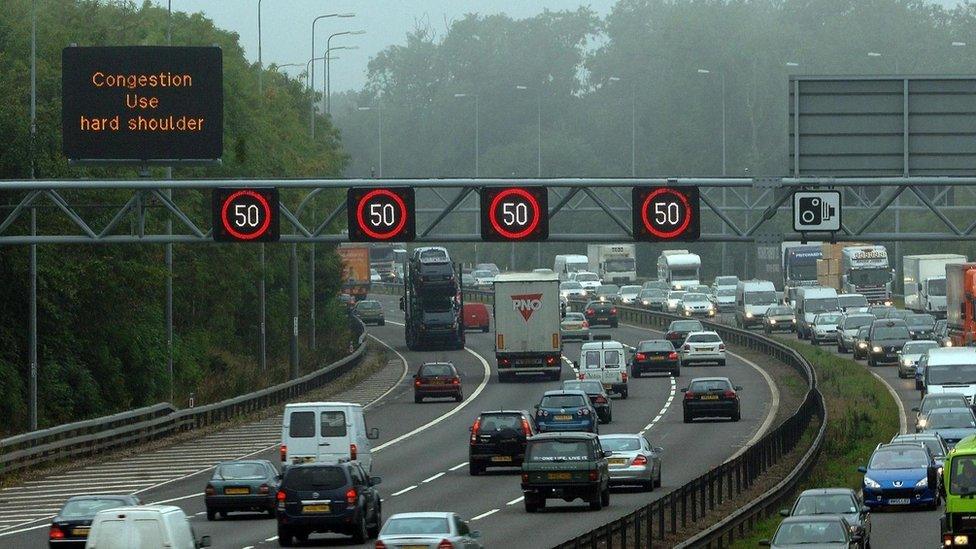
- Published30 June 2019

- Published3 September 2019
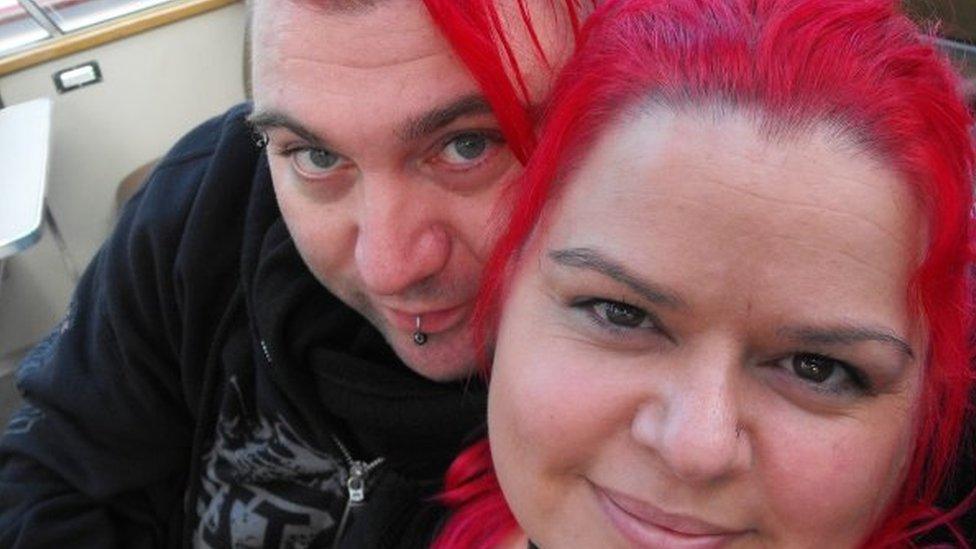
- Published30 June 2016
